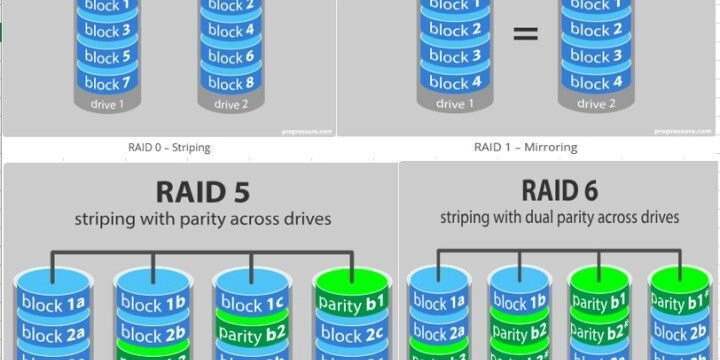Installing and Setting Up Doctrine ORM in Laravel 12
Integrating Doctrine ORM into your Laravel 12 project provides powerful object-relational mapping and flexible database management. By leveraging the APCu cache, you can dramatically boost performance for metadata and query caching. Here’s a step-by-step guide to a clean, maintainable, and high-performance setup. 1. Required Packages First, install the essential packages via Composer: composer require symfony/cache doctrine/orm doctrine/dbal symfony/cache: Modern PSR-6/PSR-16 cache support; doctrine/orm: Core ORM functionality; doctrine/dbal: Database abstraction layer. APCu PHP Extension: Make sure the APCu extension is installed and enabled in your PHP environment. You can check this with: php -m | grep apcu If not installed, add it (for example, with pecl install apcu) and enable it in your php.ini: extension=apcu.so 2. Why Use APCu? Doctrine ORM benefits greatly from caching: Metadata cache: Stores class mapping info, reducing parsing overhead; Query cache: Caches DQL parsing for faster query execution. APCu is an in-memory cache, making it extremely fast and ideal for single-server setups. It reduces database and CPU load, resulting in improved response times. 3. Example: Custom EntityManager Service Provider Create a custom Laravel service provider to configure Doctrine ORM and APCu caching.
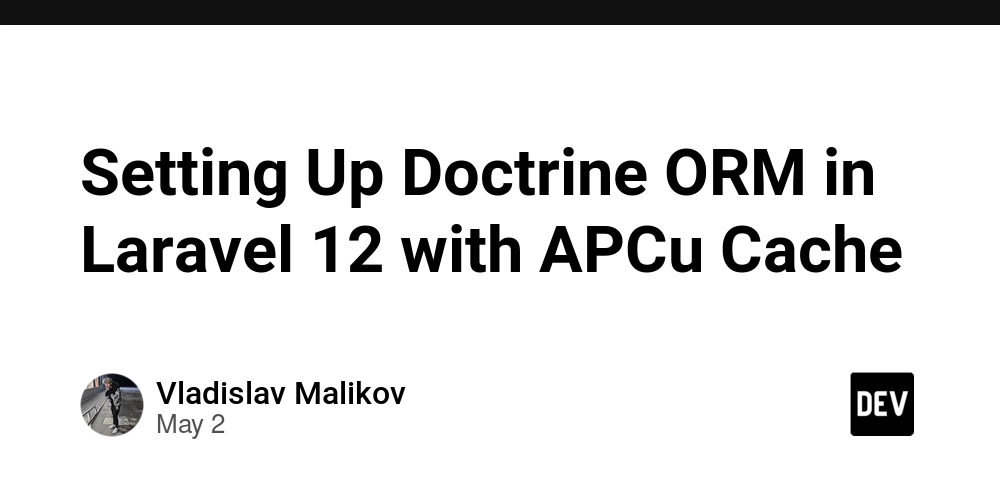
Integrating Doctrine ORM into your Laravel 12 project provides powerful object-relational mapping and flexible database management. By leveraging the APCu cache, you can dramatically boost performance for metadata and query caching. Here’s a step-by-step guide to a clean, maintainable, and high-performance setup.
1. Required Packages
First, install the essential packages via Composer:
composer require symfony/cache doctrine/orm doctrine/dbal
- symfony/cache: Modern PSR-6/PSR-16 cache support;
- doctrine/orm: Core ORM functionality;
- doctrine/dbal: Database abstraction layer.
APCu PHP Extension:
Make sure the APCu extension is installed and enabled in your PHP environment. You can check this with:
php -m | grep apcu
If not installed, add it (for example, with pecl install apcu) and enable it in your php.ini:
extension=apcu.so
2. Why Use APCu?
Doctrine ORM benefits greatly from caching:
- Metadata cache: Stores class mapping info, reducing parsing overhead;
- Query cache: Caches DQL parsing for faster query execution.
APCu is an in-memory cache, making it extremely fast and ideal for single-server setups. It reduces database and CPU load, resulting in improved response times.
3. Example: Custom EntityManager Service Provider
Create a custom Laravel service provider to configure Doctrine ORM and APCu caching.
app->singleton(
abstract: EntityManagerInterface::class,
concrete: function (Application $app): EntityManager {
$config = ORMSetup::createAttributeMetadataConfiguration(
paths: config(key: 'doctrine.metadata_dirs'),
isDevMode: config(key: 'doctrine.dev_mode'),
);
$connection = DriverManager::getConnection(
params: config(key: 'doctrine.connection'),
config: $config
);
foreach (config(key: 'doctrine.custom_types') as $name => $className) {
if (!Type::hasType(name: $name)) {
Type::addType(name: $name, className: $className);
}
}
return new EntityManager(conn: $connection, config: $config);
}
);
}
/**
* Bootstrap any application services.
*/
public function boot(): void
{
DB::connection()->getPdo()->exec("SET NAMES 'UTF8'");
}
}
Register this provider in your config/app.php providers array.
4. Doctrine Configuration (config/doctrine.php)
Set up your connection and Doctrine settings:
[
'driver' => 'pdo_pgsql',
'host' => env('DB_HOST', 'postgres'),
'port' => env('DB_PORT', '5432'),
'dbname' => env('DB_DATABASE', 'database'),
'user' => env('DB_USERNAME', 'user'),
'password' => env('DB_PASSWORD', 'password'),
'options' => [
\PDO::ATTR_ERRMODE => \PDO::ERRMODE_EXCEPTION,
\PDO::ATTR_DEFAULT_FETCH_MODE => \PDO::FETCH_ASSOC,
],
],
'metadata_dirs' => [
app_path('Entities'),
],
'custom_types' => [],
'dev_mode' => env('APP_ENV') === 'dev',
];
5. Summary Checklist
- Install symfony/cache, doctrine/orm, and doctrine/dbal via Composer;
- Enable the APCu PHP extension for high-speed in-memory caching;
- Register a custom service provider to configure and instantiate Doctrine’s EntityManager;
- Define your Doctrine configuration in config/doctrine.php, including connection details and metadata directories.
6. Performance Tips
- APCu is best for single-server setups. For distributed systems, consider Redis or Memcached;
- Use APCu for metadata and query cache. For result cache, you might want to use Redis for persistence;
- Keep your APCu cache size and TTL (time-to-live) in check to avoid cache fragmentation.
Conclusion
This setup brings the power and flexibility of Doctrine ORM to your Laravel 12 application, with APCu providing a significant performance boost for metadata and query caching. The result is a clean, maintainable, and high-performing integration, ready for even demanding workloads.
Happy coding!






































































































































































![[The AI Show Episode 145]: OpenAI Releases o3 and o4-mini, AI Is Causing “Quiet Layoffs,” Executive Order on Youth AI Education & GPT-4o’s Controversial Update](https://www.marketingaiinstitute.com/hubfs/ep%20145%20cover.png)



























































































































![[DEALS] Microsoft 365: 1-Year Subscription (Family/Up to 6 Users) (23% off) & Other Deals Up To 98% Off – Offers End Soon!](https://www.javacodegeeks.com/wp-content/uploads/2012/12/jcg-logo.jpg)




![From Art School Drop-out to Microsoft Engineer with Shashi Lo [Podcast #170]](https://cdn.hashnode.com/res/hashnode/image/upload/v1746203291209/439bf16b-c820-4fe8-b69e-94d80533b2df.png?#)




















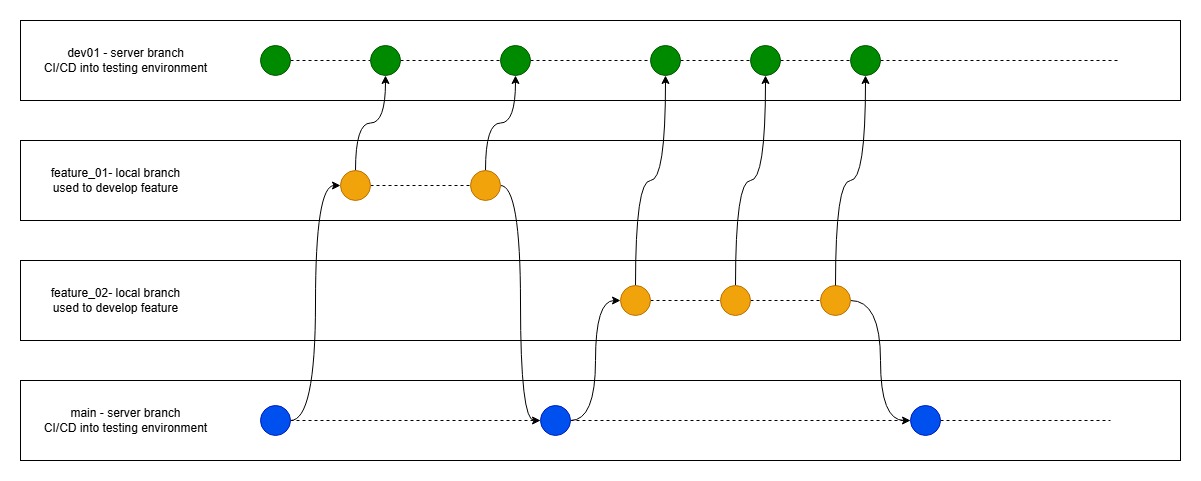



















































































(1).jpg?#)
































_Inge_Johnsson-Alamy.jpg?width=1280&auto=webp&quality=80&disable=upscale#)
























































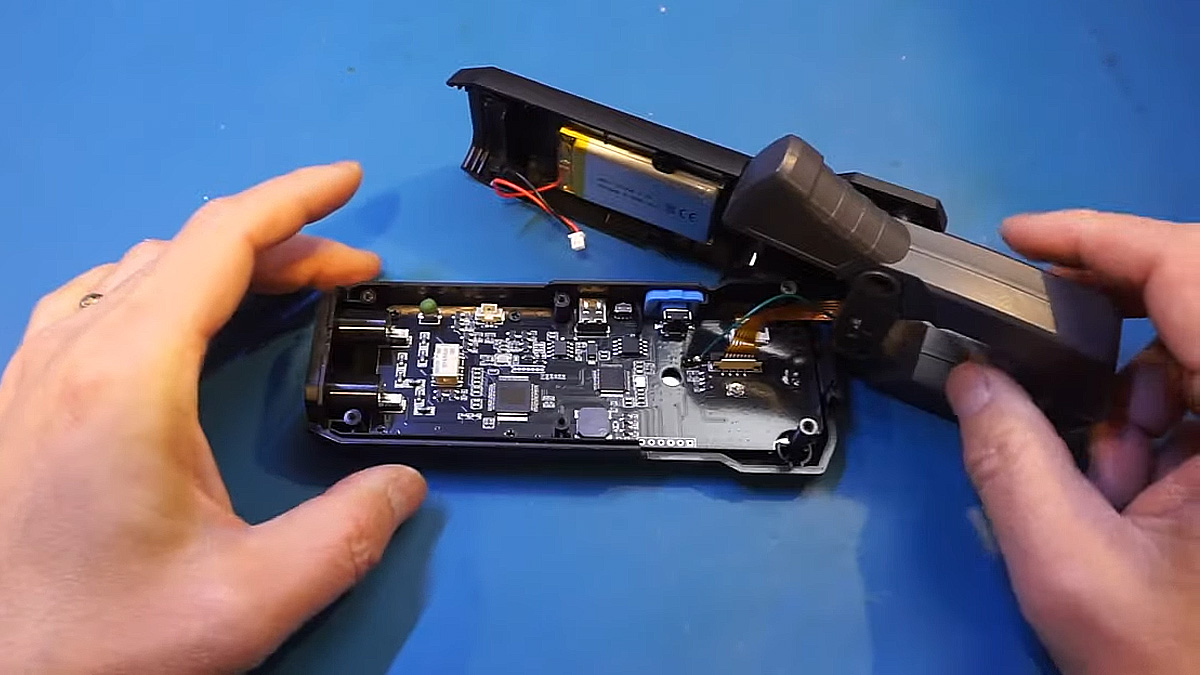

































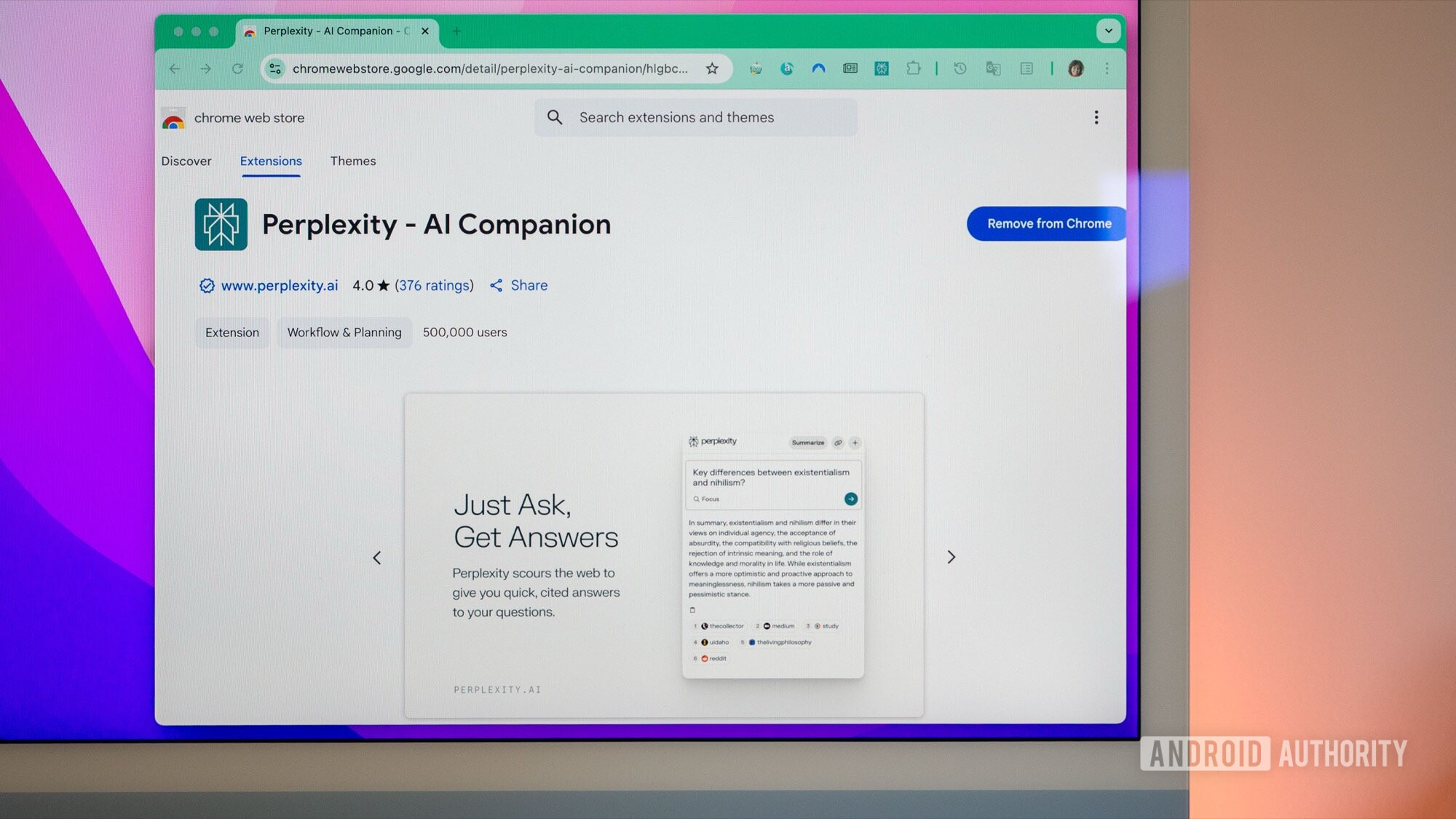



















![Apple to Split iPhone Launches Across Fall and Spring in Major Shakeup [Report]](https://www.iclarified.com/images/news/97211/97211/97211-640.jpg)
![Apple to Move Camera to Top Left, Hide Face ID Under Display in iPhone 18 Pro Redesign [Report]](https://www.iclarified.com/images/news/97212/97212/97212-640.jpg)
![Apple Developing Battery Case for iPhone 17 Air Amid Battery Life Concerns [Report]](https://www.iclarified.com/images/news/97208/97208/97208-640.jpg)
![AirPods 4 On Sale for $99 [Lowest Price Ever]](https://www.iclarified.com/images/news/97206/97206/97206-640.jpg)

































![[Updated] Samsung’s 65-inch 4K Smart TV Just Crashed to $299 — That’s Cheaper Than an iPad](https://www.androidheadlines.com/wp-content/uploads/2025/05/samsung-du7200.jpg)
































































